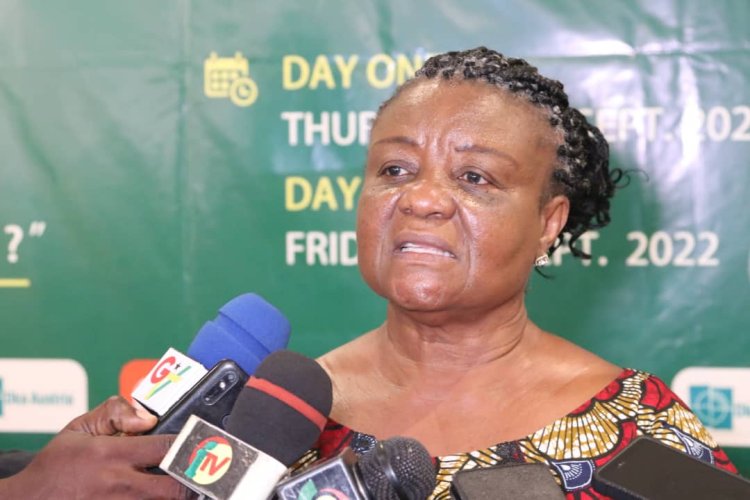Ghana not Safe without Responsible mining! ---Associate Executive Director of Wacam warns
Following what has been described as measures to regulate the mining sector, the Executive Director, Wacam has discredited the laws describing it as weak to ensure responsible mining.

Despite the numerous and seemingly beautiful laws that are meant to protect citizens of Ghana in the mining space, the Associate Executive Director, Wacam, Mrs. Hannah Owusu-Koranteng holds a different view. According to her, the mineral and mining laws that govern the sector have failed to serve the very purpose for which they were promulgated. Giving an address at a two-day forum on the theme; "Achieving The Responsible Mining Goals: A Reality Or A Mirage?", she said the laws meant to safeguard lives and the environment have failed to protect lives, livelihood, flora and fuana. The Wacam Associate Executive Director made the observation on the first day of the forum organised by her outfit and supported by its partners including Oxfam, Ford International, Care International, OSIWA and DKA Austria. She bemoaned especially the inability of the minerals and mining laws to protect the citizens. According to her, the mining companies have used their economic and lobbying power to control negotiations of compensation with vulnerable farmers resulting in the payment that do not reflect the long-term benefits of farming to people affected by the operations of multinational mining companies. "Mining rather negatively affected important sectors of the economy such as agriculture which had provided economic sustenance for majority of our people", she said. "...there is enough evidence in our country to support the fact that farming, especially cocoa farming, had supported agriarian communities in the education of many intellectuals we have in the country but had not enjoyed the protection of the numerous mining laws,"she decried. She could not understand why forests such as Kubi Forest Reserve and Ajenua Bepo Forest reserve that serve as source of many rivers and contain plants that are new to science have become a safe haven for surface mining. She, therefore, called for measures to immediately mitigate the challenges that have bedeviled the Ghanaian ecosystem. She said the long-term effects from the overall destruction from mining activities could not be overemphasised. Mrs. Owusu-Koranteng also found it difficult to fathom that with all the destruction caused by mining companies, the government has continually given what she termed "pampered treatment" with favourable tax incentives to mining companies whose level of destruction has had huge devastating effects over those that do not cause such level of effects. "Honourable Chairman, mining companies enjoy tax incentives that deprive other important sectors of the economy revenues that are required for development. A good example pertains to the maritime industry where revenues from taxes for the importation of mining equipment are zero rated as provided in section 29 of the Minerals Act (Act 703),2006 which states that: the holder of a mineral right may be granted the following:(a) exemption from payment of customs import duty in respect of plant, machinery, equipment and accessories imported specifically and exclusively for the minerals operations. (1) a person found guilty of an offence under this Act for which a penalty has not been provided is on summary conviction liable, on first conviction to a penalty of a fine not more than the cedi equivalent of US$5,000," she observed. "Section 109 titled, "Penalty to be civil debt states, "Except otherwise provided in this Act, where a fine is imposed on a person under this Act or Regulation and there is failure to pay the fine, the amount shall be recoverable as civil debt owed to the state," she stated. She underscored that the above examples showed the level of weaknesses of the mining and mineral laws which have been an indication of the strength of the mining lobby and inability to hold the mining companies to responsible mining practices. Report by Prosper Kwaku Selassy Agbitor

 Prosper Kwaku Selassy Agbitor
Prosper Kwaku Selassy Agbitor 



































